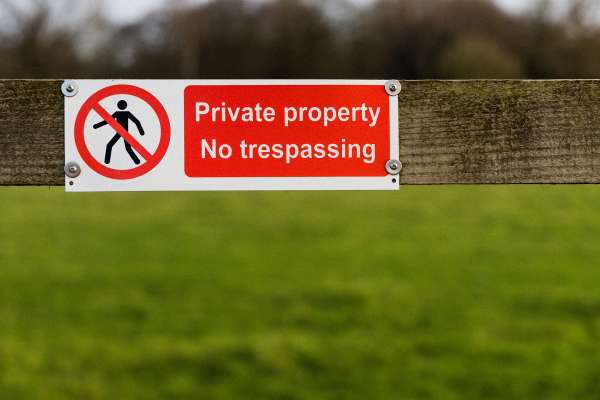Contact Our Property Litigation Solicitors
If you have any questions or would like more information regarding trespassers, please get in touch with our Property Litigation Solicitors below.
From 28 June 2022, the Police, Crime, Sentencing and Courts Act (2022) (the Act) declares that in certain matters, trespassers who illegally ‘set up’ on other people’s land or in local communities could face up to three months in prison and or a fine of up to £2,500. The new police powers have been designed to help local authorities and residents tackle unauthorised encampments.
Before the Act came into force, landowners who suffered from trespassers residing on land without permission had to go to court to obtain a possession order and damages to enable them to remove the trespassers from the land. This process was costly and slow, with little prospect of recovering legal fees.
The Criminal Law Act 1977 set out that it was a new criminal offence to gain entry to a property against someone who is opposed to that entry. Therefore, it was risky to use force against trespassers.
Police could sometimes assist under section 61 of the Criminal Justice and Public Order Act 1994 (1994 Act), which provides them with existing powers to inform trespassers that they must vacate the land/property, provided that the trespassers had caused damage to the land/property, the trespassers were physically or verbally abusive to the landowner or his agents, and there were more than six vehicles on the land.
A criminal offence will be committed under the Act if a person over the age of 18:
The Act also amends the 1994 Act to broaden the types of harm that can be caught by the power to direct trespassers under section 61(1)(a) of that Act.
It is for the police to decide on proportionate enforcement based on the circumstances and evidence of each case. However, the arrest and vehicle seizure powers can be used when a trespasser residing on land has met the conditions of the offence and has not left the land when asked to do so without reasonable excuse.
The Home Office has noted that the Act will target walkers accessing sports fields or local land as part of their recreational pastime.

The Government believes that the new and strengthened powers the Act creates will provide Police in England and Wales with sufficient powers to take effective enforcement action where a range of harms are caused and will deter trespassers.
However, the requirement to show ‘significant’ damage disruption or distress means that it will be difficult to prove. The term ‘significant’ is not defined. However, it would suggest that inconvenience will not be sufficient for the Police to become involved.
It is unlikely that the new changes will assist all landowners with trespassers, and it is likely that landowners will require legal assistance in obtaining a court order to obtain possession of their land.
The new powers have been highlighted as disproportionately impacting traveller communities; however, the Government have stated that the new Police powers will solely focus on harmful encampments that reflect badly on the traveller community and their nomadic way as a whole.
Research has shown the number of authorised sites for traveller communities increased 41% from 2010 to 2020. The Government has expressed their commitment to working to build secure traveller sites across the UK, to reduce the risk of unauthorised encampments.
If you have any questions or would like more information regarding trespassers, please get in touch with our Property Litigation Solicitors below.